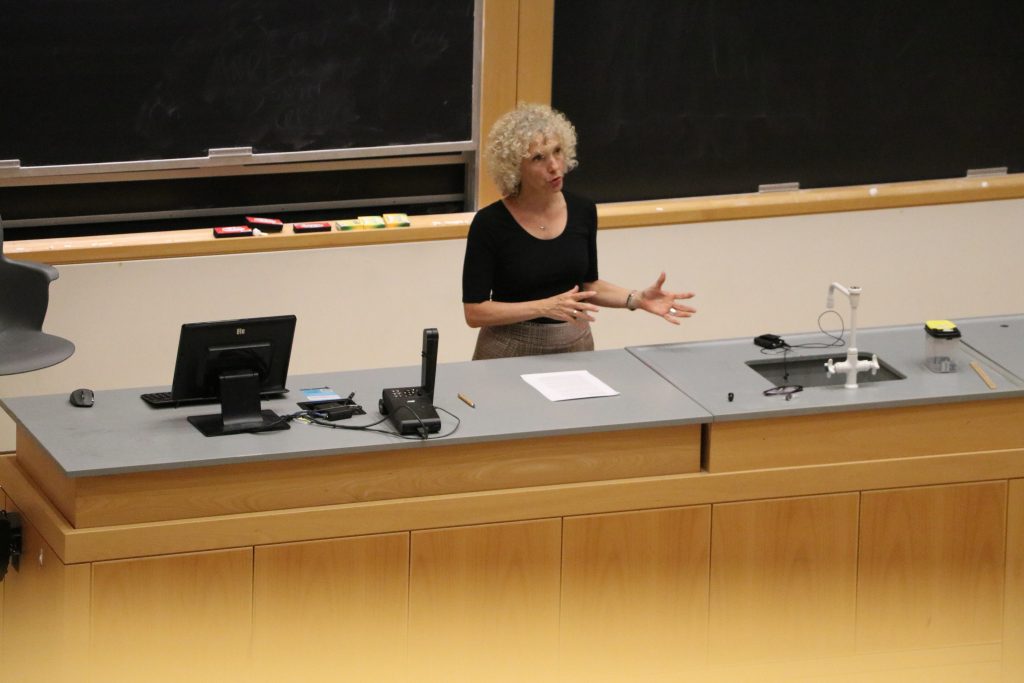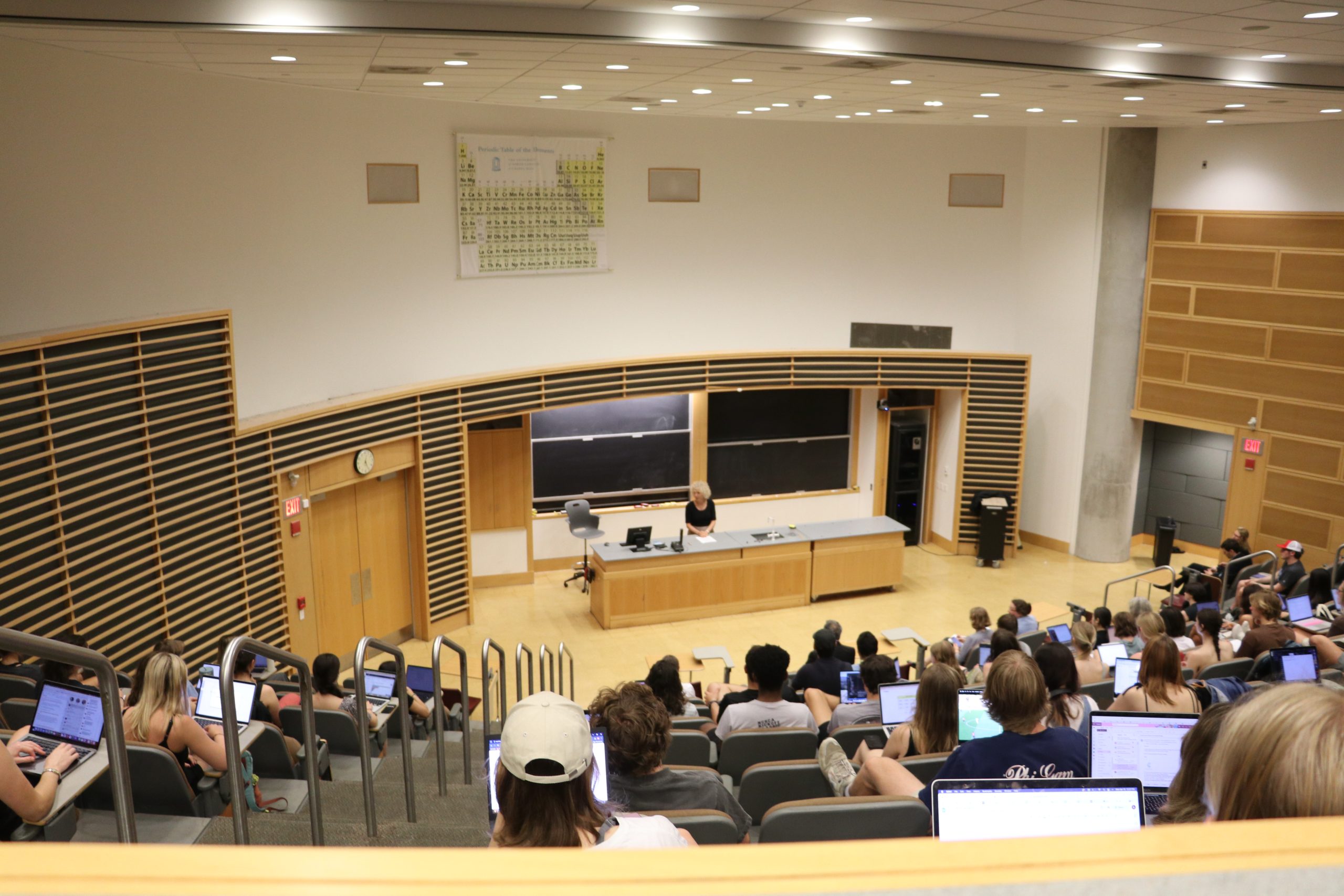“Everyone has a role to play,” says Germany’s State Secretary and Special Envoy for International Climate Action
May 30, 2024
State Secretary and Special Envoy for International Climate Action for Germany’s Federal Foreign Office, Jennifer Morgan, came to the University of North Carolina at Chapel Hill’s campus April 15 to speak to UNC students about her career in the climate field and her role at the German government.
“It’s quite an honor to have a state minister come and speak to my class,” said Greg Gangi, teaching professor and associate director for clean technology and innovation at the UNC Institute for the Environment. Gangi introduced Morgan, who grew up one town over from him in New Jersey. “She has been very active on the climate change scene.”
Morgan assumed her role in the German Federal Foreign Office in 2022 after serving as the executive director of Greenpeace International for many years. She previously held leadership roles at the World Resources Institute, Third Generation Environmentalism (E3G), World Wildlife Fund International, U.S. Climate Action Network, ICLEI and the National Resources Defense Council. She also was a member of the Scientific Advisory Board of the Potsdam Institute for Climate Impact Research and the Council for Sustainable Development of the German Federal Government.
“I’ve been in the climate field for a long time and still have the benefit of learning something every day, which is one of the amazing things about working in this field,” Morgan said as she opened the conversation. “We all know the direct impact of climate change. You can turn on your TV, turn on your YouTube, look on social media, listen to the radio, open a newspaper and we hear about the new record temperatures almost every month. We see the pictures from around the world, the droughts, the wildfires, the devastating floods and I think more and more, we feel the impacts of the climate crisis in our own backyards.”
Her visit to the U.S. brought her to stops in Georgia and South Carolina to meet with various stakeholders and to look for more ways for Germany and the U.S. to cooperate more actively in the green energy transition. She shared an example of the Ford Motor Company re-engineering a high-tech electric vehicle facility in Germany to produce electric vehicles for the European market, while also being a carbon-neutral plant.
“It shows really that both of our countries can benefit from these types of cooperation,” she said. “But I think the benefits of the energy transformation go far beyond job creation and industrial growth. It’s also about building up resilience to protect our society from future shocks. It has an economic dimension as well because of the future costs of inaction. If we don’t act now at the speed and scale required, it far outweighs the investments we are making now to mitigate climate change.”
Morgan also spoke about the vulnerabilities of the Southeast U.S. to climate change and pointed to the Fifth National Climate Assessment that came out last year, showing predicted changes in temperature, drought, extreme rainfall and sea levels.
“The climate crisis is profoundly changing our world. And not just in the most obvious ways,” she said.
The climate crisis also affects the way nations think about national security and geopolitics, she explained.
“Growth was powered by the burning of fossil fuels and prosperity really depended on that access to oil and gas and good trade relations with the exporters and now as the world transitions from fossil fuels, this will also have a massive impact on geostrategic relations,” she added.
Leaders in the global community decided at COP28 that they will work to transition away from fossil fuels, triple renewable energy and double energy efficiency by 2030.
“This decision was a reflection of how many countries now see the energy transition as a real economic opportunity and they follow ambitious plans to really position themselves in this new economic reality,” she said.
Through a national climate law, Germany has committed to achieve climate neutrality by 2045. Renewable energy from mostly wind and solar is now over half of its energy supply and has created almost 400,000 jobs, she said.
National security concerns led Germany to create a position in the Federal Foreign Office to link climate and foreign policy together. It is the position that Morgan now holds.
“International cooperation is absolutely essential to address the geopolitical dimensions of climate change and that’s also the reason why I’m here, to build these types of strong partnerships and alliances so that we can mitigate the impacts of the climate crisis.”
Morgan then turned to what the students can do to help during this critical time in the energy transition.
“You may be asking kind of what does this have to have to do with me, or what does it mean for me? What could I do about this? I think the answer to all of those is, quite a lot,” she said.
Students and young people have the opportunity to drive this whole new economy in a way that is more fair, resilient and secure than the fossil fuel economy.
“Everyone has a role to play,” she said.

